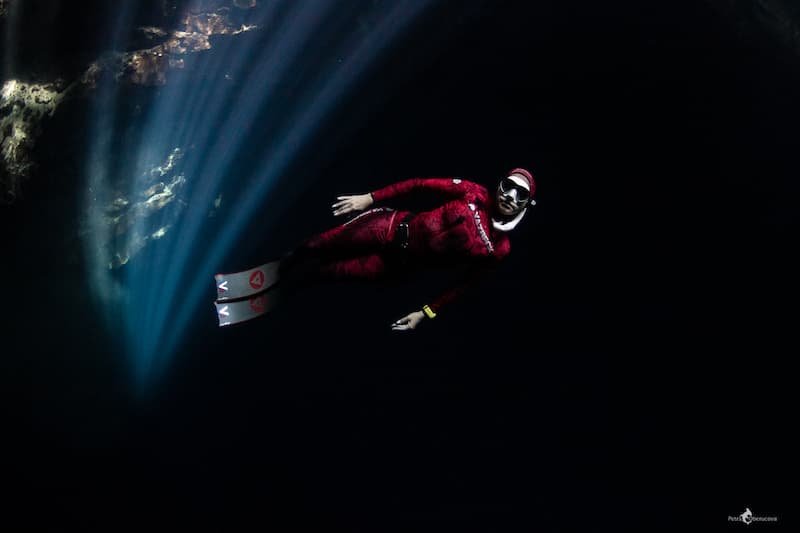
 Nick Pelios
Freediver, Creator
Nick Pelios
Freediver, Creator

 Nick Pelios
Freediver, Creator
Nick Pelios
Freediver, Creator
The Theory of Marginal Gains has emerged as a powerful concept in various domains, enabling individuals and teams to achieve significant improvements by focusing on small, incremental changes. This article explores how the theory can be applied to the challenging world of freediving, where optimizing performance is crucial for success. By understanding and implementing the principles of marginal gains, freedivers can unlock their full potential and enhance their abilities in this demanding sport.
The philosophy behind the theory is that no single action or change will result in a remarkable transformation, but by focusing on optimizing numerous small factors, the overall performance can be greatly enhanced. This approach acknowledges that success is rarely the result of one significant breakthrough, but rather the culmination of numerous marginal improvements. The theory of marginal gains encourages individuals or teams to identify and target various areas for improvement, ranging from physical training, equipment design, nutrition, mental preparation, recovery techniques, and even factors such as sleep quality and team dynamics. By examining each element and seeking marginal improvements, the theory suggests that the overall performance can be significantly elevated.
This approach is applicable not only in sports but also in other areas of life, such as business, education, and personal development. The theory of marginal gains emphasizes the importance of continuous improvement and the understanding that even small, seemingly insignificant changes can have a cumulative impact on overall performance and success.

Freediving presents athletes with exceptional challenges that demand precise physical and mental abilities. The sport requires individuals to hold their breath for extended periods and dive to considerable depths. Key factors affecting performance in freediving include breath-hold capacity, efficient diving technique, mental fortitude, relaxation, and optimal oxygen utilization. Each of these areas provides opportunities for applying the theory of marginal gains.

Physical Training
* Focus on breath-hold exercises to improve lung capacity and breath control.
* Enhance strength and flexibility through targeted exercises.
* Optimize diving technique for streamlined movement and reduced energy expenditure.
Mental Preparation
* Develop mental resilience and focus through meditation and visualization.
* Practice stress management techniques to handle pressure and anxiety.
* Improve self-awareness and self-control to maximize performance under challenging conditions.
Nutrition and Hydration
* Follow a well-balanced diet to provide essential nutrients for energy and muscle recovery.
* Optimize hydration levels to enhance overall physical performance.
* Consider specific dietary strategies to reduce lactic acid build-up and improve endurance.
Recovery and Regeneration
* Prioritize adequate rest and sleep to facilitate physical and mental recovery.
* Utilize recovery techniques such as cold-water immersion, massage, and stretching.
* Incorporate active recovery exercises to promote circulation and reduce muscle fatigue.
Equipment and Technology
* Evaluate and upgrade gear for improved hydrodynamics and efficiency.
* Utilize specialized equipment like neck weights designed specifically for freediving.
* Leverage technology such as dive computers and underwater cameras for performance analysis and feedback.
Environmental Awareness
* Develop knowledge and understanding of the diving environment.
* Adapt to different conditions such as currents, visibility, and water temperature.
* Enhance safety protocols to minimize risks and optimize performance.
By systematically applying the theory of marginal gains across various aspects of freediving, athletes can experience substantial improvements in their performance. Each small, incremental change contributes to the overall progress and facilitates reaching new depths, extending breath-hold times, and enhancing overall endurance. The cumulative effect of these marginal gains can significantly elevate an individual's capabilities in the sport.